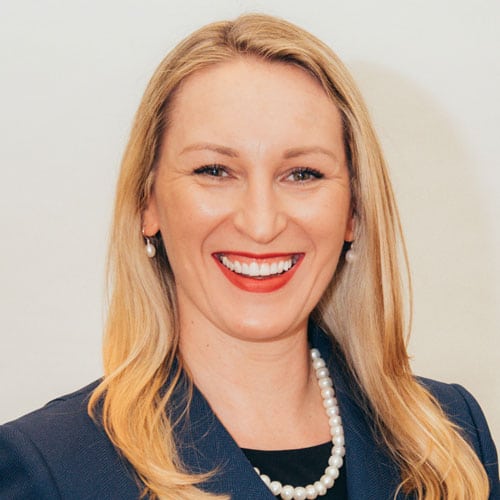Once the excitement of being promoted wears off, most new law firm partners find themselves in uncharted territory. After a few weeks, reality hits: In addition to your existing duties, you now have a new set of responsibilities, including leading yourself and others, developing business and building your practice and the firm.
In many ways, you are now an entrepreneur running your own business. And it’s not easy.
While various entrepreneurial leadership traits are important for new partners, one key quality can make all the difference in your career. It is your mindset. More specifically, it’s the type of mindset you possess.
What’s in a Mindset?
Mindset is defined as a mental attitude or inclination. Basically, it’s our beliefs and attitudes about the world, other people in it, and ourselves. Because our beliefs determine the actions we do or don’t take, our mindset determines our behavior. This applies to many areas of our lives.
Stanford University psychologist Carol Dweck, after decades of research on achievement and success, articulated a simple idea about mindset. In her research, Dweck distinguishes between two types of mindsets:
- A fixed mindset is about having a narrow, limiting view that things are the way they are and basically they cannot change.
- A growth mindset is about having an open, flexible way of seeing yourself, other people, and things and circumstances around you; there is no cap, we are constantly evolving, constantly growing. This view creates a love of learning and a resilience that is essential for great accomplishments. Virtually all great people have had these qualities.
A Growth Mindset’s Benefits for New Law Firm Partners
The benefits of a growth-oriented mindset might seem obvious, but most of us are guilty of having a fixed mindset in certain situations. For example:
- “I’m not someone who will ever be good at business development. I hate self-promotion, and I don’t like asking people for things. Moreover, I’m [an “introvert”] [not part of a “power circle”] [not from the “right” background].”
- “Associates these days don’t take any initiative. They only do what’s explicitly asked of them. I was much more proactive when I was an associate.”
- “It is what it is.”
So how can you change the things you believe about yourself and others, eliminate your fixed mindset, and adopt a growth mindset to achieve your goals? Here are a few practical tips from our law firm partner orientation program.
Tip 1: Become aware of your limiting beliefs.
It starts with awareness. What stories are you telling yourself about your abilities, aptitude or natural talents? What about other people? What about the world around you?
Sure, there are things we can all improve, other people can be frustrating, and certainly, the world is not always a just and happy place. But are your beliefs limiting you or encouraging you? Are they making you feel small and keeping you from taking action, or do they inspire and motivate you to keep pushing against your current limitations?
Here are some examples of limiting beliefs about business development that we often hear from lawyers:
- “I don’t have the right personality to succeed in business development.”
- “There are too many competitors.”
- “I’ll be like a used car salesperson.”
- “I’m not good at marketing or promoting and selling myself.”
When you say, “I’m not good at promoting or selling myself,” that story you tell yourself acts as an excuse to avoid trying to promote yourself or to even learn how. The fixed mindset is designed to protect you. And while it may prevent you from failing in the short run, in the long run it impedes your ability to acquire new skills and experience.
Meanwhile, someone with a growth-oriented mindset would be willing to try promoting themselves even if they felt uncomfortable or failed at first. Or, they would seek additional knowledge that would help them improve. People with a growth mindset see setbacks as a signal they should continue developing their skills rather than a signal that says, “This is something I’m never going to be good at, so why bother.”
Tip 2: Ask probing questions to challenge your limiting beliefs.
Now that you have a better understanding of which beliefs might be contributing to a fixed mindset, your next step is to challenge them. Here are questions to ask yourself:
- Where did this belief come from?
- How has having this belief affected or limited you? What is it costing you?
- How has having this belief been serving you? How is it benefiting you?
- What do you need to have, know or experience to let that belief go?
- What might a new belief be that more fully supports you?
For example, a woman partner was ready to give up on following up with a prospect after he failed to reply to her last few emails. She was feeling uncomfortable about continuing because she felt it would make her look pushy, aggressive and too salesy. Instead, we helped her reframe her mindset and develop a different approach for her follow-up. The prospective client responded and ultimately sent her new work. Not only that, the client actually thanked her for her persistent follow-up! If she had stuck to her limiting belief and given up when she wanted to, she would not be serving this Fortune 100 technology client now.
Expand Your Comfort Zone
The bottom line is that people who have a growth mindset are more likely to realize their potential. They tend to learn from criticism rather than disregard it, to overcome challenges rather than avoid them, and to find inspiration in the success of others rather than feel threatened. As a new law firm partner, be open-minded, eager to learn and willing to try new things. Challenge yourself constantly to expand your comfort zone.
Here’s to your success!
This article is based on lessons included in “Developing Your Entrepreneurial Leadership Toolkit,” a live or virtual partner orientation program from 20/20 Leadership Group. For information, email at support@2020lead.com.
Illustration ©iStockPhoto.com
More Tips for New Partners
- “Pushing Past Fear and Failure”
- “Sponsors Are the New Mentors, Especially for Women”
- “Fire a Client”
- Take Five Steps Up to Leadership
- “Sponsoring Women: What Men Need to Know” (Book) – Use discount code “2020” to save 20%
- “60-Minute Mentoring for Lawyers and Law Students” (Book) – Use discount code “2020” to save 20%
Subscribe to Attorney at Work
Get really good ideas every day for your law practice: Subscribe to the Daily Dispatch (it’s free). Follow us on Twitter @attnyatwork.

















